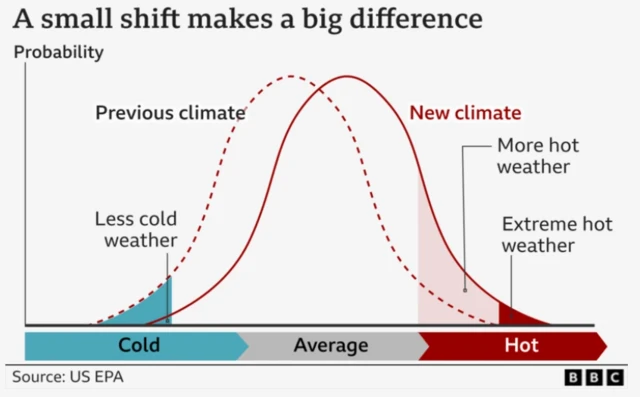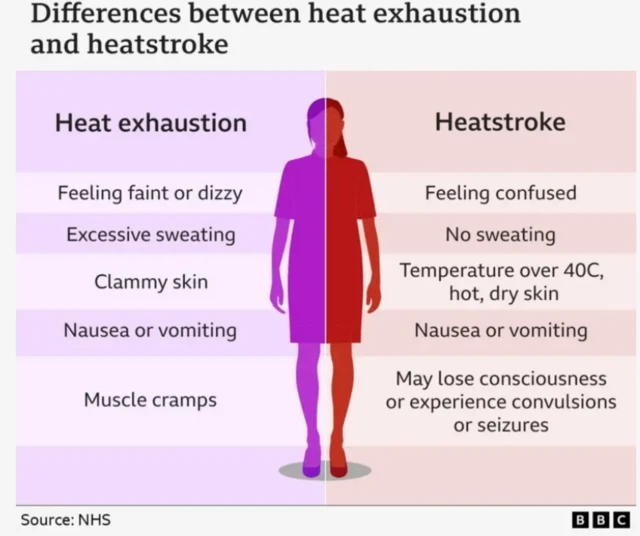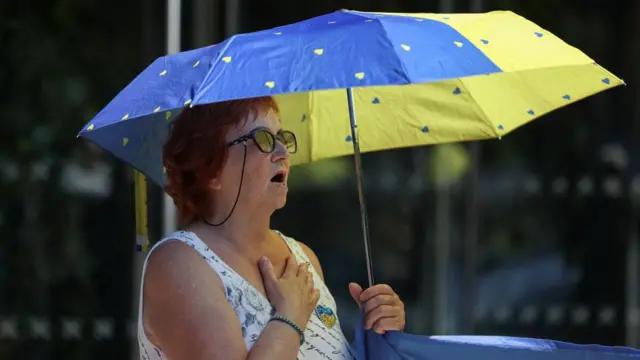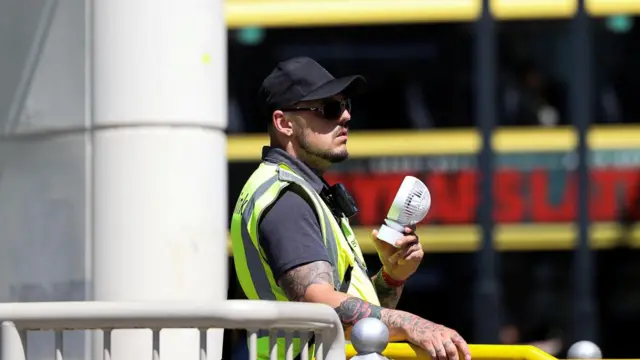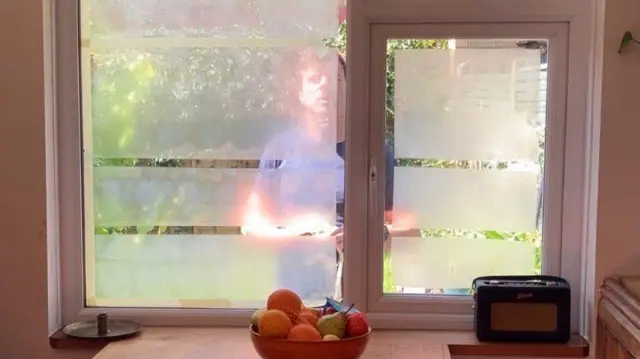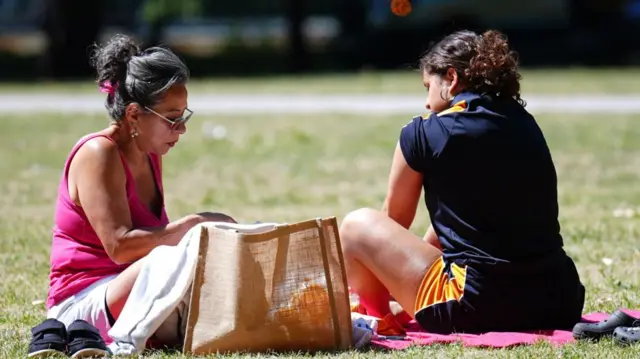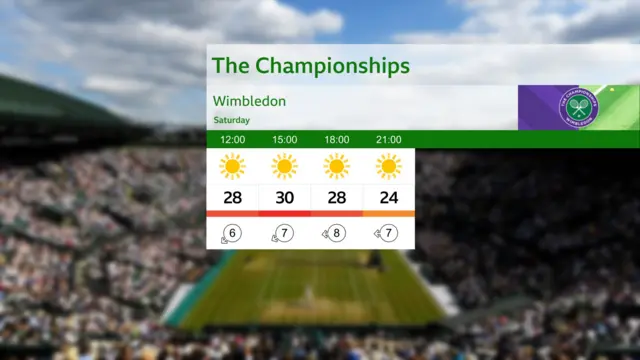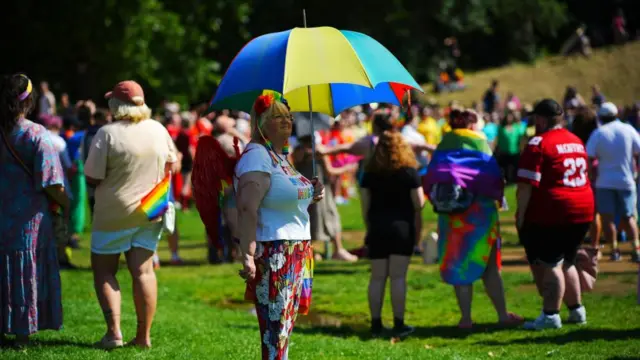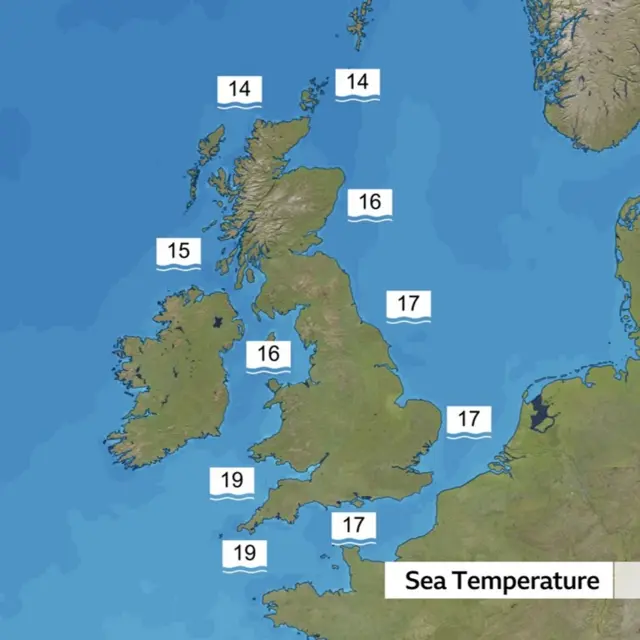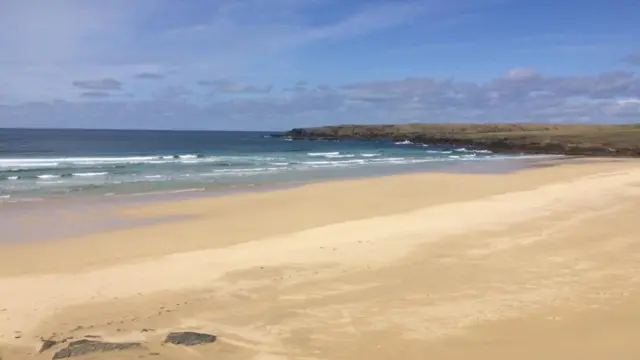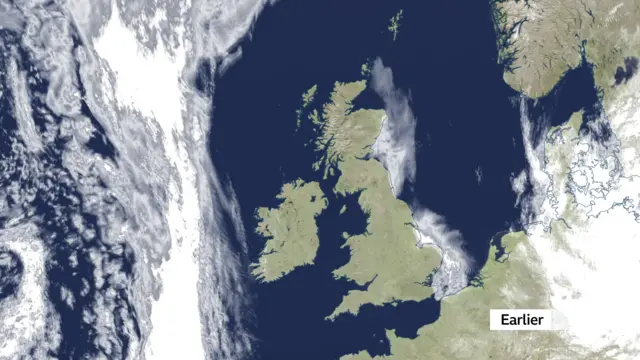Cooler temperatures to bring relief for some parts of UK in days aheadpublished at 18:59 BST 12 July
Chris Fawkes
BBC Weather presenter
Tomorrow will be another hot day with temperatures widely reaching 28-31C (82-88F) but there will be a few more patches of cloud around. Although most places are expected to stay dry there could be an odd isolated shower popping up.
For those that hate the heat, relief is on the horizon with an Atlantic low pressure bringing rain and showers to many areas through Monday with temperatures 18-24C (64-75F) for most.
It won’t be until Tuesday that the cooler air reaches east England.
Late next week, there are signs that temperatures could edge back towards heatwave thresholds for some.
Could heatwave number four be just around the corner?
We're now closing our live coverage of the UK heatwave, but you can keep up to date in our news story.


